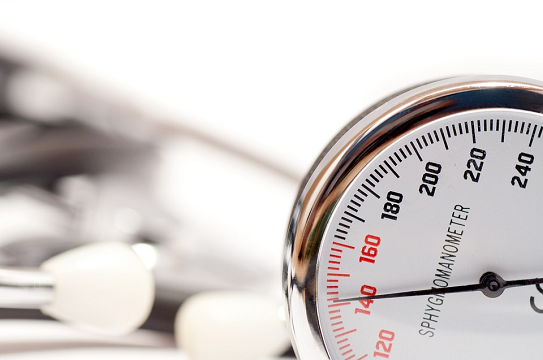When somebody mentions the word health to you, what kinds of thoughts or images pop into your mind? For many of us, heart health is an important consideration, but we tend to assume that we only need to worry about our most precious vital organ later in life. The reality is that it’s never too early to start protecting your heart, as youth doesn’t make you immune from cardiac complications. If you’re keen to do more to boost your heart health, this guide should prove useful.

Image taken from https://pixabay.com/en/photos/heart%20health/
Heart disease: the facts
Did you know that heart disease is the most common killer in the US behind cancer? According to the Centers for Disease Control and Prevention, more than 610,000 lives are lost to heart disease every year. This equates to a quarter of deaths. Many of us assume that heart disease is something that only affects older people, but statistics show that more and more younger people are experiencing cardiovascular health problems. Heart disease is more common in men than women, accounting for more than half of male deaths every year. However, the gap between the sexes is narrowing.
What causes heart disease?
In most cases, people who have symptoms of heart disease have at least one risk factor. Risk factors increase your risk of developing a certain type of illness, but they don’t necessarily mean that you’re going to end up being diagnosed with a disease. The more risk factors you have, the higher the chance of falling ill. The main risk factors for heart disease include:
High blood pressure
Your blood pressure reading measures the force at which blood travels through the blood vessels. If you have high blood pressure, known as hypertension, this can put you at risk of strokes and heart attacks. There are no obvious symptoms of high blood pressure, so it’s a good idea to have your blood pressure checked on a regular basis. If your readings are too high, you may be advised to make lifestyle changes or to start taking medication. Ideally, your blood pressure should be around 120/80.

Image source: https://pixabay.com/en/blood-pressure-pressure-gauge-2310824/
High cholesterol
Cholesterol is a fatty substance, which plays an important role in the body. We all need cholesterol, but if your cholesterol levels are too high, this can be dangerous. There are two types of cholesterol: high-density lipoprotein (HDL) and low-density lipoprotein (LDL). HDL is often referred to as ‘good’ cholesterol and LDL ‘bad’ cholesterol. If your LDL readings are too high, you may be encouraged to make changes to your diet, and this article is a useful reference tool https://www.prevention.com/health/how-to-lower-cholesterol-naturally.

Image sourced from https://pixabay.com/en/photos/burger/
Smoking
Smoking is a major risk factor for a host of deadly diseases, including heart disease. Smoking damages the walls of the arteries, which increases the risk of atherosclerosis. This condition occurs when fatty deposits collect in the artery walls, making it difficult for blood to flow freely. If the arteries are narrow, the risk of blockages increases, and this elevates the risk of heart attacks and strokes. Heart attacks happen when blood supply to and from the heart is disturbed while strokes occur when oxygen cannot reach the brain. Quitting smoking can lower your risk of developing cardiac illnesses, and if you want to give up, there is help available. Your doctor can give you more information about treatments such as nicotine replacement and you can also visit vaporescence.com to learn about vaping. Vaping is widely regarded as a safer alternative to smoking because it doesn’t expose you to the hundreds of harmful chemicals found in cigarettes. Some people also find seeing a stop smoking adviser or attending group support sessions beneficial. It may also be helpful to avoid other smokers in your social circle for a while and to avoid places where you usually smoke, such as bars or restaurants.

Image via https://www.pexels.com/search/smoking/
Inactivity
Your heart is a muscle, and just like other muscles, if you don’t work it, you won’t get the best out of it. Inactivity has been hailed as a greater threat to health than obesity. Experts recommend 150 minutes of moderate exercise per week, but studies show that 80 percent of American adults don’t hit this target. Simple changes can make all the difference if you’re trying to be more active. Wear an activity tracker or use an app to reach a daily steps goal, start walking or cycling to work and always take the stairs instead of the elevator. If you don’t do any exercise, think about joining a gym, going to the pool a few times a week or asking friends or your partner to go for a jog after work. Exercising frequently will boost your health, and you should also notice that it lifts your mood, reduces stress and helps you to sleep at night.

Image credit https://commons.wikimedia.org/wiki/File:Dataspel.jpg
Obesity
Obesity is linked to several serious diseases. If you’re obese, you’re likely to have a higher risk of developing heart disease, especially if you carry a lot of excess fat around the middle. Obesity can lower good cholesterol levels and increase bad cholesterol, and people who are obese are also likely to be less active. Obesity also increases the risk of high blood pressure and type 2 diabetes. If you are obese, it’s wise to try and lose weight and reach that healthy weight range. The best way to do this is to control your diet, follow a healthy, calorie-controlled eating plan and exercise more frequently. Avoid fad diets and anything that claims to be a quick fix, as these options tend to produce short-term results and they’re usually not very good for your health. Your doctor can help you set goals and stay focused, and you may also find it useful to enlist the help of a personal trainer. They can draw up tailored workouts and be there to support, reassure and motivate you.

Image from http://www.publicdomainpictures.net/hledej.php?hleda=weight+loss
If you want to be healthier, looking after your heart is an excellent place to start. You should never take your health for granted, even if you’re young. You may think that you’ll never have to worry about heart attacks or strokes, but the statistics don’t lie. It’s never too early to start protecting your heart and making choices that will keep it beating for many years to come.



